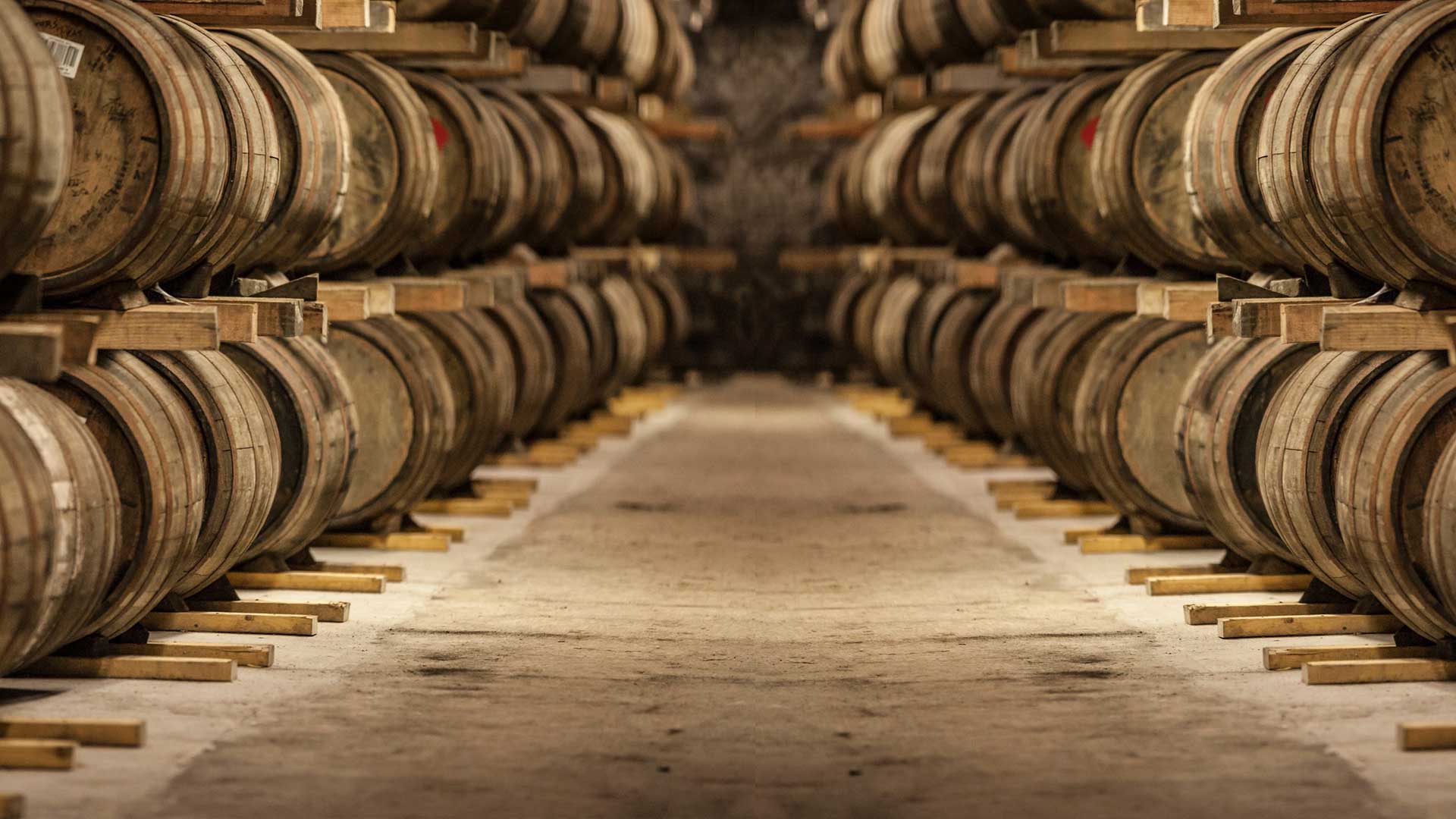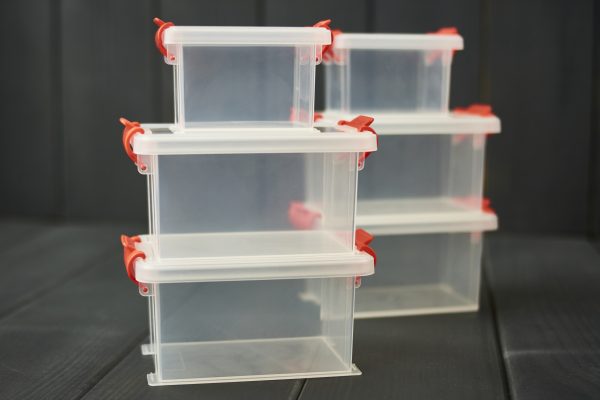

Articles
How To Store Whisky For Investment
Modified: December 7, 2023
Learn valuable tips and strategies for storing whisky for investment in this comprehensive collection of articles. Maximize your returns with expert advice and guidance.
(Many of the links in this article redirect to a specific reviewed product. Your purchase of these products through affiliate links helps to generate commission for Storables.com, at no extra cost. Learn more)
Introduction
Whisky, also known as whiskey in some countries, has been enjoyed by connoisseurs and enthusiasts around the world for centuries. However, what many people may not realize is that whisky can also be a lucrative investment. In recent years, the market for whisky as an alternative investment has grown significantly, with rare and limited edition bottles fetching high prices at auctions.
If you are interested in exploring whisky as an investment, it is important to understand the factors that can influence its value and how to properly store it to maintain its quality. In this article, we will guide you through the process of storing whisky for investment purposes, from selecting the right bottles to monitoring and eventually selling your investment.
Before diving into the details, it is worth noting that whisky investment does come with its own risks. As with any investment, there are no guarantees of returns, and the value of whisky can fluctuate over time. However, for those who are passionate about whisky and have a keen eye for collecting, it can be a rewarding endeavor both financially and personally.
So, if you’re ready to embark on your whisky investment journey, let’s delve into the world of whisky and explore the steps you need to take to store it properly for investment purposes.
Key Takeaways:
- Whisky investment requires deep knowledge of market trends, bottle selection, and proper storage. Patience, research, and adaptability are key to maximizing returns in this unique and rewarding investment venture.
- Successful whisky investment involves understanding market dynamics, monitoring trends, and strategic selling. Balancing passion for whisky with informed decisions can lead to a fulfilling and profitable investment journey.
Read more: Why Are Crystal Glasses Used For Whisky?
Understanding Whisky as an Investment
Whisky, with its rich history and craftsmanship, has gained recognition as a viable investment option. Unlike traditional investments such as stocks or real estate, whisky offers a unique blend of enjoyment and potential financial growth.
One of the key factors that make whisky an attractive investment is its limited supply. As whisky ages, its availability decreases, creating rarity and exclusivity. This scarcity drives up the demand and subsequently the value of certain whisky brands and expressions.
Whisky’s investment potential is further bolstered by its enduring popularity. The global whisky market has witnessed steady growth in recent years, with a rising demand from emerging markets such as Asia. This growing interest, coupled with the limited supply, makes whisky a promising investment choice.
Another aspect to consider is the role of collectors and enthusiasts in driving up whisky prices. Many whisky aficionados are passionate about building extensive collections, driving up the demand for rare and sought-after bottles. The collectability factor adds an additional layer of investment potential to whisky, as collectors are willing to pay a premium for exceptional bottles.
When it comes to investing in whisky, it’s crucial to note that not all bottles will yield significant returns. Just like any investment market, there are specific brands and expressions that hold greater investment potential. The value of a whisky is influenced by factors such as its age, rarity, distillery, brand reputation, and critical acclaim.
Researching and understanding the whisky market is essential before making any investment decisions. Monitoring trends, attending whisky auctions, and consulting experts in the field can provide valuable insights into which bottles are most likely to appreciate in value over time.
It’s also worth mentioning that whisky investment is a long-term endeavor. While some bottles may appreciate quickly, the majority of investments will take several years to realize their full potential. Patience is key when it comes to whisky investment, as prices can fluctuate over time.
Overall, understanding whisky as an investment involves recognizing its limited supply, enduring popularity, and the influence of collectors. By developing a deep knowledge of the market and identifying the right bottles to invest in, you can lay the foundation for a successful whisky investment journey.
Factors to Consider before Investing
Before diving into the world of whisky investment, there are several key factors to consider to ensure you make informed decisions. Understanding these factors will help you navigate the market and increase your chances of a successful investment. Let’s explore these factors in detail:
- Knowledge and Research: It’s crucial to educate yourself about whisky and the investment market. Familiarize yourself with different whisky brands, distilleries, and expressions. Stay updated on industry news and trends. The more you know, the better equipped you will be to make informed investment choices.
- Budget: Determine your investment budget. Whisky investments can range from affordable bottles to extremely rare and expensive ones. It’s important to set a budget that aligns with your financial goals and risk tolerance.
- Diversification: Like any investment, diversification is key. Consider investing in a variety of whisky styles, brands, and regions. This reduces the risk associated with a single bottle or brand, and increases the chances of overall portfolio growth.
- Quality and Rarity: When evaluating potential investments, consider the quality and rarity of the whisky. Older whiskies and limited editions tend to have greater investment potential. Look for bottles from well-regarded distilleries with a track record of producing exceptional whiskies.
- Condition and Packaging: The condition of the bottle and its packaging can significantly impact its value. Collectors and investors prefer bottles in pristine condition with original packaging. Damage or signs of poor storage can negatively affect the investment potential.
- Third-party Authentication: To ensure the authenticity of a rare bottle, consider getting it authenticated by a reputable third-party. This adds credibility and value to your investment.
- Long-term Outlook: Whisky investment is a long-term commitment. Be prepared to hold onto your investments for several years to witness potential appreciation in value. Short-term fluctuations are common, but over time, well-selected bottles have the potential to yield substantial returns.
- Demand and Market Trends: Pay attention to market demand and trends. Understand which whisky styles, brands, or regions are gaining popularity and which ones are projected to increase in value. This information can help you make informed decisions when buying and selling whisky.
- Purchase Channels: Consider your options for purchasing whisky. You can buy directly from distilleries, specialized whisky retailers, online platforms, or attend whisky auctions. Assess the availability, pricing, and reputation of the seller before making a purchase.
- Legal and Tax Considerations: Consult relevant legal and tax professionals to understand any regulations or obligations related to whisky investment in your jurisdiction. This ensures compliance and avoids any potential legal or tax issues.
By carefully considering these factors, you can lay a solid foundation for a successful whisky investment journey. Remember, knowledge, diversification, quality, and a long-term outlook are key to making informed and profitable investment decisions.
Selecting the Right Whisky for Investment
Choosing the right whisky for investment is crucial to maximize your chances of a successful return. With the vast array of options available, it’s important to consider several factors before making your purchase. Here are some key considerations when selecting the right whisky for investment:
- Age and Rarity: Older whiskies often have more investment potential as they are harder to find and their value tends to appreciate over time. Look for limited edition releases or whiskies from distilleries that are no longer operational as these are often highly sought after by collectors.
- Distillery and Brand Reputation: Whiskies from renowned distilleries with a strong reputation tend to have higher investment potential. Well-established brands and distilleries have a track record of producing exceptional whiskies that are highly valued in the collector’s market.
- Reviews and Ratings: Research reviews and ratings from trusted whisky experts and publications. Highly rated whiskies are likely to have a broader appeal and potentially command higher prices in the market.
- Collectability: Consider the collectability factor when selecting a whisky for investment. Look for unique packaging, limited edition releases, or bottles with historical significance that can capture the attention of avid collectors.
- Global Demand: Assess the global demand for the whisky you are considering. Whiskies that are popular in emerging markets, such as Asia, often have higher investment potential due to increasing demand from a broader customer base.
- Whisky Styles and Regions: Different whisky styles and regions have their own unique characteristics and followings. Understanding the preferences and trends in the market can help you identify whiskies that are in high demand. For example, Scotch whisky has a long-standing reputation, while Japanese whisky has gained popularity in recent years.
- Limited Edition Releases: Limited edition releases are highly coveted by collectors and investors. These whiskies are often produced in small quantities and offer a level of exclusivity that can drive up their value over time. Keep an eye out for special releases from well-regarded distilleries.
- Provenance: Whiskies with a known and documented history, such as those from famous casks or collections, can have added value. The story behind a particular whisky can intrigue investors and collectors, making it more desirable.
- Investment Forums and Communities: Engage with online whisky investment forums and communities to gain insights and recommendations from experienced investors. Sharing knowledge and experiences can help you make more informed decisions when selecting whiskies for investment.
- Budget and Risk: Set a budget that aligns with your financial goals and risk tolerance. Whisky investments can range from affordable options to extremely rare and expensive bottles. It’s important to strike a balance between accessibility and the potential for significant returns.
Overall, selecting the right whisky for investment involves considering factors such as age, rarity, distillery reputation, reviews, global demand, collectability, limited editions, provenance, and your budget. Conduct thorough research, consult experts, and stay informed about market trends to make informed decisions. Remember, collecting and investing in whisky should also be an enjoyable experience, so choose whiskies that resonate with your personal tastes and preferences.
Proper Storage Conditions for Whisky
Proper storage is paramount for maintaining the quality and value of your whisky investment. Whisky is a delicate spirit that can be affected by various environmental factors. By ensuring the right storage conditions, you can preserve the flavor, aroma, and overall integrity of your bottles. Here are some essential considerations for storing whisky:
- Temperature: Whisky should be stored at a consistent cool temperature, ideally between 15°C to 20°C (59°F to 68°F). Avoid extreme temperature fluctuations, as they can damage the whisky and potentially affect the seal of the bottle.
- Humidity: The ideal humidity range for whisky storage is between 60% to 70%. High humidity can cause mold growth on the labels and corks, while low humidity can cause evaporation and affect the quality of the whisky. Using a hygrometer can help monitor and maintain the appropriate humidity level.
- Light: Excessive exposure to sunlight can degrade the quality of your whisky and lead to color fading. Keep your bottles away from direct sunlight or fluorescent lighting to prevent any damage. Dark-colored or opaque bottles are preferable for long-term storage.
- Vibration: Avoid storing your whisky in a location prone to continuous vibrations, such as near appliances or heavy traffic areas. Vibrations can disturb the whisky molecules and affect its flavor profile over time. Choose a stable and secure storage spot.
- Air Circulation: Good air circulation is essential to prevent the buildup of mold or musty odors. Ensure that your storage area has adequate ventilation and avoid cramming bottles together too tightly. Proper airflow helps maintain the quality of the whisky.
- Upright or Horizontal Storage: Unlike wine, whisky is generally stored upright. This helps to keep the cork moist and reduce the risk of air leakage. However, if your whisky bottle has a screw cap or synthetic cork, horizontal storage is also acceptable.
- Avoid Strong Odors: Whisky is susceptible to absorbing odors from its surroundings. Keep your storage area free from strong-smelling substances that can taint the whisky’s aroma, such as cleaning agents, spices, or perfumes.
- Adequate Shelving or Racks: Use sturdy and stable shelving or racks to store your whisky bottles. Avoid storing them directly on the floor, as it can increase the risk of temperature fluctuations and potential damage. Consider using specially designed whisky storage racks to showcase and protect your investment.
- Proximity to Heat Sources: Whisky should be kept away from heat sources, including radiators, ovens, or heaters. Heat can accelerate the aging process of the whisky and negatively impact its flavor and overall quality.
- Secure and Controlled Access: If you have a valuable whisky collection, consider storing it in a secure and controlled access environment. This can provide added protection against theft, damage, or accidental handling.
By adhering to these proper storage conditions, you can ensure that your whisky investment remains in optimal condition. Keep in mind that whisky ages and evolves over time, but maintaining the right storage environment will help preserve its value and enhance your overall investment experience.
Store whisky for investment in a cool, dark place away from direct sunlight and temperature fluctuations. Keep the bottles upright to prevent the cork from drying out and store in a location with stable humidity levels.
Read more: 50 Reclaimed Wood Coffee Table To Invest In
Choosing the Ideal Storage Location
When it comes to storing your whisky investment, selecting the right storage location is crucial for maintaining the quality and value of your bottles. The ideal storage location should offer a combination of optimal conditions, security, and accessibility. Here are some key factors to consider when choosing the ideal storage location for your whisky:
- Temperature Control: Look for a storage location that provides temperature-controlled environments. Consistent cool temperatures, ideally between 15°C to 20°C (59°F to 68°F), are essential for preserving the quality and flavor of whisky. Avoid locations prone to extreme temperature fluctuations.
- Humidity Regulation: Assess whether the storage location has measures in place to regulate humidity. Whisky should be stored in an environment with a humidity level between 60% to 70%. This helps keep the corks moist and prevent evaporation or mold growth. A reputable storage facility will have humidity monitoring systems in place.
- Light Protection: Ensure that the storage location provides protection against excessive light exposure. Whisky is sensitive to light, especially direct sunlight and fluorescent lighting, which can degrade the quality and color of the whisky. Look for a location with minimal exposure to natural or artificial light.
- Security Measures: The storage location should have appropriate security measures to safeguard your investment. This may include surveillance cameras, security personnel, access controls, and alarm systems. Your whisky collection represents a significant financial investment, so it’s important to prioritize security.
- Accessibility: Consider the accessibility of the storage location. You should be able to access your whisky collection easily when needed. However, strike a balance between accessibility and security. A reputable storage facility will have controlled access protocols to ensure only authorized individuals can retrieve the bottles.
- Air Circulation and Ventilation: Adequate air circulation is important for maintaining the quality of your whisky. Look for a storage location with proper ventilation to prevent the buildup of mold or musty odors. This ensures that fresh air circulates around your bottles, keeping them in optimal condition.
- Insurance Options: Inquire about insurance options provided by the storage facility. Insurance coverage can provide peace of mind in the event of unforeseen circumstances such as theft, damage, or accidents. Review the terms and conditions of the insurance policy to ensure it aligns with your needs.
- Reputation and Reviews: Do your research and assess the reputation of the storage facility. Look for reviews and feedback from other customers to gauge the facility’s track record and customer satisfaction. A reputable storage location will have positive reviews and a history of reliable service.
- Proximity to Home or Convenience: Consider whether the storage location is conveniently located near your home or workplace. If you plan to access your whisky collection frequently, proximity can be a crucial factor. However, prioritize the quality of the storage facility over convenience to ensure optimal storage conditions.
- Additional Services: Some storage facilities offer additional services such as inventory management, collection management software, or expert advice on whisky investments. Assess whether these additional services align with your needs and investment goals.
Choosing the ideal storage location involves careful consideration of factors such as temperature control, humidity regulation, light protection, security measures, accessibility, air circulation, reputation, and insurance options. By selecting a reputable storage facility that meets these criteria, you can have peace of mind knowing that your whisky investment is safe and well-preserved.
Key Tips for Storing Whisky for Investment
Proper storage is essential for maintaining the quality and value of your whisky investment. Whether you are storing a few bottles or a sizable collection, following these key tips will help ensure that your whisky remains in optimal condition:
- Choose the Right Storage Location: Select a storage location that offers temperature control, humidity regulation, and security measures to protect your investment. Look for reputable facilities with a track record of preserving whisky collections.
- Maintain the Ideal Temperature: Store your whisky at a consistent cool temperature, around 15°C to 20°C (59°F to 68°F). Avoid extreme temperature fluctuations, as they can degrade the quality of the spirit.
- Regulate Humidity Levels: Aim for a humidity range of 60% to 70%. This helps prevent cork drying and evaporation. Use a hygrometer to monitor humidity levels and consider using humidity control devices, such as humidity packs, if necessary.
- Protect from Light Exposure: Keep your whisky away from direct sunlight and fluorescent lighting, as they can damage the liquid and affect its color. Choose a storage location that offers protection against light exposure.
- Ensure Proper Bottle Orientation: Store your whisky bottles upright, especially if they have natural corks. This helps keep the corks moist and prevents leakage. If the bottles have screw caps or synthetic corks, horizontal storage is also acceptable.
- Avoid Strong Odors: Keep your whisky away from strong-smelling substances that can impact its aroma. Odors can penetrate the bottle and affect the flavor profile. Opt for a storage location free from strong odors or consider using specialized whisky storage cabinets.
- Minimize Vibrations: Whisky is sensitive to vibrations, which can disturb the liquid and affect its aging process. Store your bottles away from sources of continuous vibrations to maintain their quality.
- Keep an organized inventory: Maintain a detailed inventory of your whisky collection. This helps you keep track of your bottles, their values, and any relevant information. Use inventory management software or spreadsheets to manage your collection effectively.
- Rotate Bottles: If you have a large collection, consider rotating your bottles periodically. This allows for equal exposure to the storage environment and prevents any one bottle from sitting untouched for too long.
- Regularly Monitor and Inspect: Check on your whisky collection regularly to ensure everything is in order. Look for signs of leakage, mold, or any other damage. Address any issues promptly to prevent further deterioration.
- Consider Insurance Coverage: Insure your whisky collection to protect it from unforeseen events such as theft or damage. Consult with an insurance provider familiar with whisky collections to determine the best coverage options for your investment.
By following these key tips, you can effectively store and preserve your whisky investment for years to come. Remember, proper storage conditions are vital for maintaining the quality, flavor, and value of your bottles, so take the necessary steps to ensure the long-term enjoyment and potential appreciation of your investment.
Monitoring Your Whisky Investment
Monitoring your whisky investment is crucial to track its value, identify market trends, and make informed decisions. As with any investment, staying informed and regularly assessing the performance of your whisky collection can help maximize your returns. Here are some key tips for effectively monitoring your whisky investment:
- Keep a Detailed Inventory: Maintain a comprehensive inventory of your whisky collection. Record details such as bottle information, purchase dates, prices, and any additional relevant data. This will help you track the performance and value of each bottle over time.
- Research Market Trends: Stay up to date with market trends and industry news. Follow reputable whisky publications, blogs, and forums to gain insights into the latest developments. Understanding market trends can influence your buying and selling decisions.
- Attend Whisky Auctions and Events: Participate in whisky auctions and events to gauge the market and observe price trends. Attend tastings, fairs, and festivals to network with fellow collectors and investors. These events can offer valuable insights and opportunities to expand your knowledge.
- Consult with Whisky Experts: Engage with experts in the whisky industry, such as collectors, brokers, or whisky investment advisors. Their expertise can provide valuable guidance in assessing the value and potential of your whisky investment. Seek their insights on market trends and future projections.
- Track Auction Results: Monitor auction results to gain a broader understanding of the market. Analyze sales prices of similar bottles to gauge the potential value of your collection. Online platforms and auction catalogs can provide access to past auction results and price histories.
- Review Whisky Ratings and Reviews: Regularly check whisky ratings and reviews from trusted sources. Critically acclaimed and highly rated whiskies tend to have better investment potential. Stay informed about the latest releases and industry accolades that may influence the value of specific bottles.
- Assess Bottle Condition: Periodically inspect the condition of your bottles. Check for any signs of damage, leakage, or deterioration. Address any issues promptly to prevent further degradation of the whisky and potential loss in value.
- Maintain Communication with Collectors and Investors: Network with other whisky collectors and investors through online communities, forums, or local tasting groups. Share experiences, insights, and information. Discussions with like-minded individuals can provide valuable perspectives and keep you informed about emerging opportunities.
- Reevaluate Your Portfolio Regularly: Regularly assess your whisky portfolio to identify underperforming bottles or potential investment opportunities. Consider adjusting your portfolio based on changing market dynamics or shifting trends. Be prepared to sell or acquire new bottles accordingly.
- Track Investment Performance: Keep track of the performance of your whisky investment over time. Compare the purchase price of each bottle against current market values to determine your investment returns. Calculate your overall return on investment to assess the profitability of your whisky portfolio.
By actively monitoring your whisky investment, you can proactively respond to market changes, identify potential opportunities, and make informed decisions. Remember to stay engaged, gather insights from industry experts, and continuously assess the performance and growth potential of your whisky collection.
Selling Your Whisky Investment
If you have decided to sell your whisky investment, careful planning and execution are vital to ensure a successful and profitable transaction. Selling whisky requires knowledge of the market, understanding buyer preferences, and employing appropriate sales strategies. Here are key steps to consider when selling your whisky investment:
- Assess Market Conditions: Before selling, evaluate the current market conditions and trends. Research recent auction results, price guides, and industry news to gauge the demand and pricing for the specific whiskies you plan to sell. Understanding the market will help you set appropriate pricing and timing for your sales.
- Appraise Your Whiskies: Determine the value of your whiskies by obtaining professional appraisals or consulting with reputable whisky experts. Appraisals provide an objective assessment of the current market value of your bottles, helping you set competitive pricing.
- Select the Right Sales Channel: Decide on the sales channel that best suits your needs. You can sell your whiskies through various avenues such as whisky auction houses, specialized whisky retailers, online marketplaces, or private sales. Assess the advantages and disadvantages of each channel based on your goals, the nature of your collection, and potential fees or commissions.
- Prepare Detailed Listings: Create comprehensive and accurate listings for each bottle you intend to sell. Include essential information such as distillery, age, provenance, condition, and any unique selling points. High-quality photographs showcasing the bottle and packaging can also enhance the appeal to potential buyers.
- Market Your Whiskies: Develop effective marketing strategies to attract potential buyers. Leverage social media platforms, online whisky communities, and forums to promote your collection. Engage with whisky enthusiasts and collectors who might be interested in your specific bottles. Highlight the unique features, rarity, or historical significance of your whiskies to generate interest.
- Consider Professional Assistance: Seek professional guidance if you are new to the selling process or own rare and valuable whiskies. Whisky brokers or consultants can provide expertise in pricing, marketing, and facilitating the sale. Their knowledge and experience can help you navigate the market effectively.
- Manage Negotiations: Be prepared to negotiate with potential buyers. Determine your minimum acceptable price and set realistic expectations based on market value and demand. Consider offers carefully and be open to reasonable negotiations to ensure a successful sale.
- Packaging and Shipping: Safely package your bottles to prevent any damage during transit. Use appropriate protective materials and sturdy packaging to secure the bottles. Adhere to shipping regulations and consider using insured and reputable shipping services to minimize the risk of loss or breakage.
- Legal Considerations: Familiarize yourself with any legal requirements or obligations related to selling alcohol in your jurisdiction. Ensure compliance with local laws, including age verification and licensing if necessary. Consult legal professionals to navigate any legal complexities.
- Documentation and Records: Maintain accurate records of all sales transactions, including invoices, receipts, and any communication with buyers. These documents serve as proof of authenticity and can ensure a smooth and transparent selling process.
- Evaluate Feedback and Adjust: Pay attention to feedback from potential buyers or market trends throughout the selling process. Adjust your pricing, marketing strategies, or even the selection of bottles if necessary. Adaptability can increase your chances of a successful sale.
By following these steps and considering the market conditions, properly pricing your whiskies, effectively marketing your collection, and managing negotiations, you can optimize the selling process and maximize the returns on your whisky investment. It’s important to approach the process with patience, flexibility, and a strong understanding of market dynamics to achieve a successful and satisfying transaction.
Conclusion
Investing in whisky can be an exciting and potentially rewarding venture for both whisky enthusiasts and investors alike. By understanding the intricacies of whisky as an investment, selecting the right bottles, and properly storing them, you can enhance the chances of success and maximize the value of your collection.
Throughout this article, we have explored various aspects of whisky investment, including understanding whisky as an investment, factors to consider before investing, selecting the right whiskies, proper storage conditions, choosing the ideal storage location, monitoring your investment, and selling your whisky.
Remember, whisky investment is a long-term commitment that requires careful research, monitoring, and adaptability. Stay informed about market trends, attend tastings and auctions, consult with experts, and regularly assess the performance of your whisky collection. This knowledge and proactive approach will empower you to make informed decisions and optimize your investment potential.
Whether you are a collector looking to expand your whisky portfolio or an investor seeking alternative investment options, the world of whisky holds unique opportunities. Balance your passion for whisky with strategic thinking and a deep understanding of market dynamics to navigate the path to a successful whisky investment journey.
Lastly, enjoy the process. Whisky investment is not only about financial returns, but also about the appreciation of craftsmanship, the joy of tasting exceptional drams, and the connections made within the whisky community. So raise a glass and embark on your whisky investment journey, savoring each sip and relishing the growth of your collection.
Frequently Asked Questions about How To Store Whisky For Investment
Was this page helpful?
At Storables.com, we guarantee accurate and reliable information. Our content, validated by Expert Board Contributors, is crafted following stringent Editorial Policies. We're committed to providing you with well-researched, expert-backed insights for all your informational needs.














0 thoughts on “How To Store Whisky For Investment”